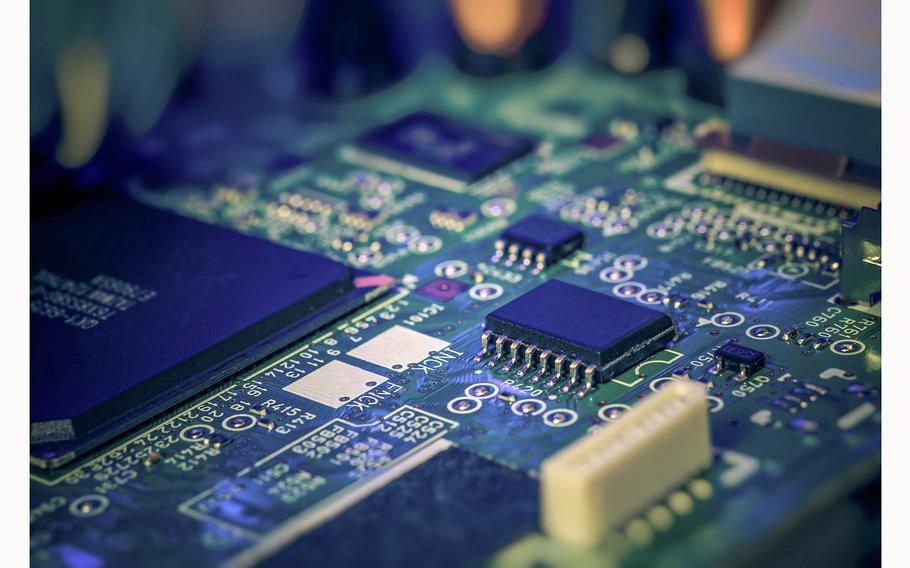
The United States, Japan and South Korea pledged to cooperate more closely on building more resilient supply chains and developing key technologies, including semiconductors and critical minerals. (Dreamstime/TNS)
(Tribune News Service) — The United States, Japan and South Korea pledged to cooperate more closely on building more resilient supply chains and developing key technologies, including semiconductors and critical minerals.
The three countries said they would work to identify potential vulnerabilities in global supplies that are essential to their economies and address weaknesses in strategic sectors. They highlighted semiconductors, clean energy, critical minerals, cybersecurity and artificial intelligence as vital areas.
“Our shared intent is to leverage this trilateral mechanism to promote the development of critical and emerging technologies and strengthen the security and resiliency of our economies,” the countries said in a joint statement after a gathering of U.S. Secretary of Commerce Gina Raimondo, Japanese Minister of Economy, Trade and Industry Ken Saito and Korean Minister of Trade, Industry and Energy Ahn Duk-geun.
In one example, the three countries aim to promote the development of rare earth element technologies, where China now plays a dominant role. The nations expressed concern over “non-market measures” in the sector recently.
European Union competition commissioner Margrethe Vestager joined representatives of the three countries online ahead of the trilateral meeting to discuss strengthening the supply chains of key technologies.
Japan’s Saito said in a news conference in Washington that the allied countries are paying close attention to China’s investments in its domestic semiconductor industry. In particular, he noted the rapid expansion of Chinese capacity in legacy chips, older generations of semiconductors that are widely used in automobiles and other key industries.
“I got the feeling, through my discussion with the U.S., South Korea and EU, that China’s excess production, including legacy chip manufacturing, is something of great interest among allies,” Saito said.
©2024 Bloomberg L.P.
Visit bloomberg.com.
Distributed by Tribune Content Agency, LLC.